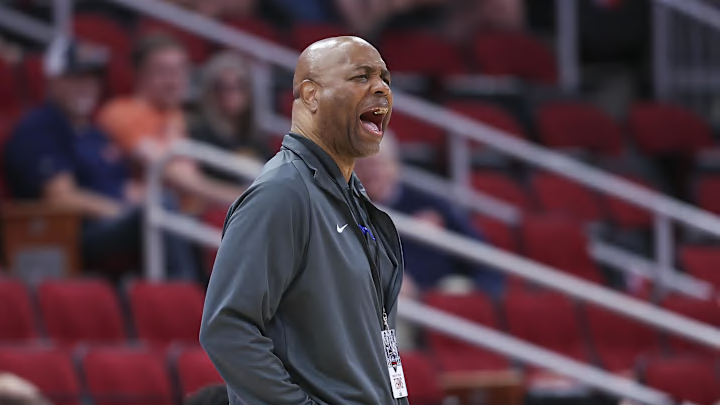Florida State's Leonard Hamilton Faces Lawsuit Alleging $1.5M in Unpaid NIL Deals

The Florida State Seminoles men’s basketball coach Leonard Hamilton is at the center of an intriguing legal battle, as six former players have filed a lawsuit against him for $1.5 million in unpaid NIL (Name, Image, and Likeness) compensation. Per Yahoo Sports' Ross Dellenger, the suit alleges that Hamilton promised each player $250,000 in NIL payments through his “business partners” during the 2023-24 season, a promise that ultimately went unfulfilled.
The plaintiffs—Darin Green Jr., Josh Nickelberry, Primo Spears, Cam’Ron Fletcher, De’Ante Green, and Jalen Warley—claim that Hamilton made these guarantees in both team meetings and private conversations, persuading some players to remain at FSU while recruiting others to transfer in. The alleged failure to deliver on these promises not only damaged player trust but also created turmoil within the team. According to the suit, the players boycotted a practice before a February 17 game against the Duke Blue Devils in frustration over the unpaid NIL compensation. While Hamilton convinced them to play in the game after promising payments the following week, the money never arrived.
Broken promises like these have become an all-too-common storyline in the NIL era, where the rapid rise of athlete compensation has created a chaotic, largely unregulated system. NIL collectives, boosters, and even coaches have made financial commitments to players that often lack the infrastructure or accountability to ensure follow-through. The fallout from such scenarios can be devastating, not only for the programs involved but also for the athletes whose trust is broken and careers disrupted.
Florida State’s 17-16 finish last season was a disappointing result for a usually stout program but the ripple effects of unmet financial commitments added fuel to the team’s struggles. All six plaintiffs, some whose eligibility expired and others who transferred, cited these NIL controversies as a key factor in their decisions to leave the program. The lawsuit accuses Hamilton of breach of contract, fraudulent misrepresentation, and negligent misrepresentation, with each player seeking $250,000 in damages.
The impact goes far beyond mere financial loss for the athletes. NIL offers are often a significant factor in a player's decision to join a program, and when those promises go unfulfilled, the consequences can derail their careers. Rather than focusing on their development and performance on the court, these players were forced to deal with unexpected financial strain and broken commitments. This disruption not only hindered their growth but also compelled them to leave the program, forcing them to start over and rebuild their careers in unfamiliar systems.
This lawsuit against Hamilton serves as a cautionary tale about the volatile nature of NIL in college sports. For Florida State, it tarnishes the program’s reputation and raises questions about its ability to foster trust and stability among its players. For one of the most accomplished coaches in college basketball, these allegations cast a shadow over his legacy and leadership. As NIL continues to reshape the landscape of college athletics, the importance of transparency, accountability, and trust cannot be overstated. The fallout from this case could have long-lasting repercussions for Florida State, not only in the courtroom but also on the court and in recruiting, where the shadow of unfulfilled promises may haunt the program for years to come.
